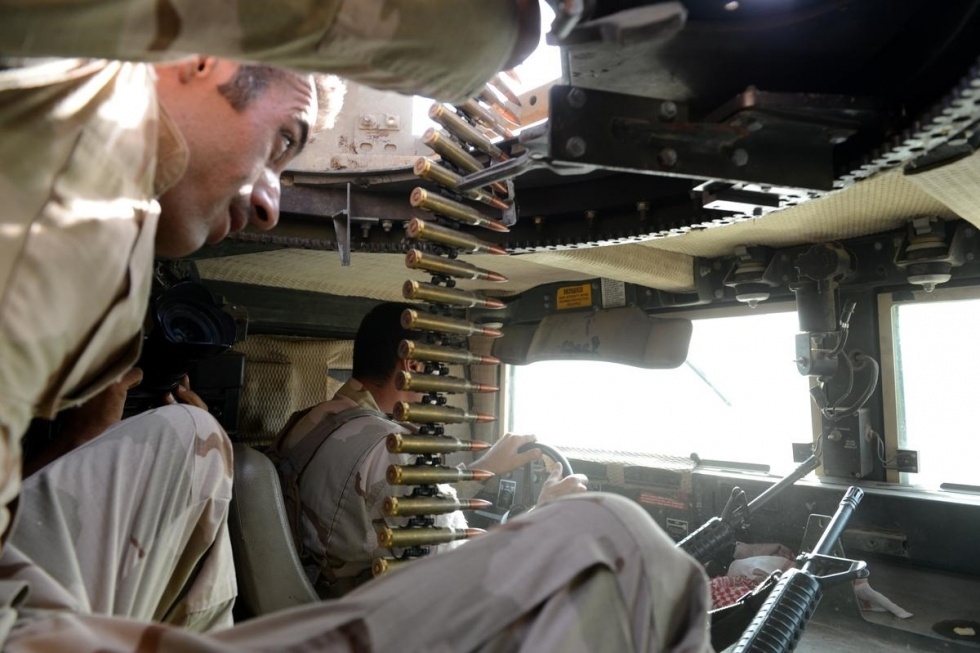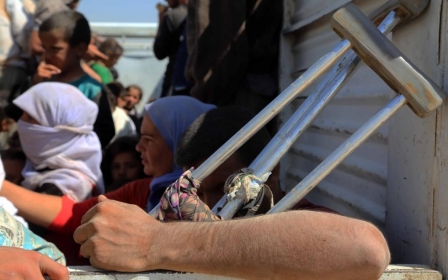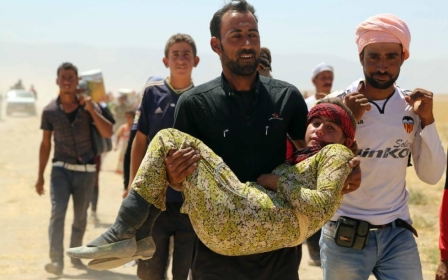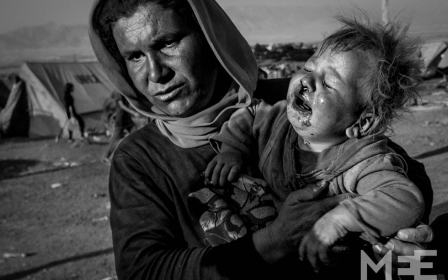Iraqi Kurds fight to retake key Mosul dam from Islamic State

Two months of violence have brought Iraq to the brink of breakup, and world powers relieved by the exit of long-time premier Nuri al-Maliki were flying aid to the displaced and arms to the Kurds.
Kurdish forces attacked the IS fighters who wrested the Mosul dam from them a week earlier, a general told AFP.
"Kurdish Peshmerga, with US air support, have seized control of the eastern side of the dam" complex, Major General Abdelrahman Korini told AFP, saying several Islamic State militants had been killed.
Buoyed by the air strikes US President Barack Obama ordered last week, the Peshmerga have tried to claw back the ground they lost since the start of August.
The dam on the Tigris provides electricity to much of the region and is crucial to irrigation in vast farming areas in Nineveh province.
The recapture of Mosul dam would be one of the most significant achievements in a fightback that is also getting international material support.
The Kurdish offensive comes a day after the European Union foreign ministers encouraged the bloc's member countries to send arms to the Kurds and German Foreign Minister Frank-Walter Steinmeier visited Iraq.
Islamic State took 'revenge'
Fear of an impending genocide against the Yazidi minority, whose faith is anathema to the Sunni Muslim extremists, was one reason Washington cited for air strikes it began on 8 August.
Obama declared the Mount Sinjar siege over on Thursday, but vulnerable civilians remain in areas taken by IS.
In Kocho, senior Kurdish official Hoshyar Zebari said the militants "took their revenge on its inhabitants, who happened to be mostly Yazidis who did not flee their homes".
Human rights groups and residents say IS fighters have demanded that villagers in the Sinjar area convert or leave, unleashing violent reprisals on any who refused.
A senior official of one of Iraq's main Kurdish parties said 81 people had lost their lives in the Friday attack, while a Yazidi activist said the death toll could be even higher.
The village lies near the northwestern town of Sinjar, which the jihadists stormed on 3 August sending tens of thousands of civilians, many of them Yazidi Kurds, fleeing into the mountains to the north.
They hid there for days with little food or water.
Mohsen Tawwal, a Yazidi fighter, said he saw a large number of bodies in Kocho on Friday.
"We made it into a part of Kocho village, where residents were under siege, but we were too late," he told AFP by telephone.
"There were corpses everywhere. We only managed to get two people out alive. The rest had all been killed."
The Pentagon announced that US drones had struck an IS convoy leaving the village on Friday after receiving reports that residents were under attack.
The outcome of the latest US strike was not immediately clear.
Thousands kidnapped: Amnesty
Amnesty International, which has been documenting mass abductions in the Sinjar area, says IS has kidnapped thousands of Yazidis since it launched its offensive in the region.
Members of the Christian, Turkmen and other minorities have also been affected by the violence.
In New York, the UN Security Council unanimously adopted a resolution aimed at weakening IS, who control large areas of neighbouring Syria as well as of Iraq.
The resolution "calls on all member states to take national measures to suppress the flow of foreign terrorist fighters", and threatens sanctions against anyone involved in their recruitment.
When Islamic State forces began their Iraq offensive on 9 June, Kurdish peshmerga forces initially fared better than retreating federal soldiers, but the US-made weaponry abandoned by government troops turned IS into an even more formidable foe.
They were able to sweep through the Sunni Arab heartland north and west of Baghdad in early June, encountering little effective resistance.
Many in and outside Iraq say the Shiite-led government was partly to blame by pushing sectarian policies that have marginalised and radicalised the Sunni minority.
Outgoing premier Nuri al-Maliki was seen as an obstacle to any progress, and his announcement on Thursday that he was abandoning his efforts to cling to power was welcomed with a sigh of relief at home and abroad.
In another potentially game-changing development, 25 Sunni tribes in the western province of Anbar, including some that had previously been on the fence, announced on Friday that they were launching a coordinated effort to oust IS fighters.
New MEE newsletter: Jerusalem Dispatch
Sign up to get the latest insights and analysis on Israel-Palestine, alongside Turkey Unpacked and other MEE newsletters
Middle East Eye delivers independent and unrivalled coverage and analysis of the Middle East, North Africa and beyond. To learn more about republishing this content and the associated fees, please fill out this form. More about MEE can be found here.




